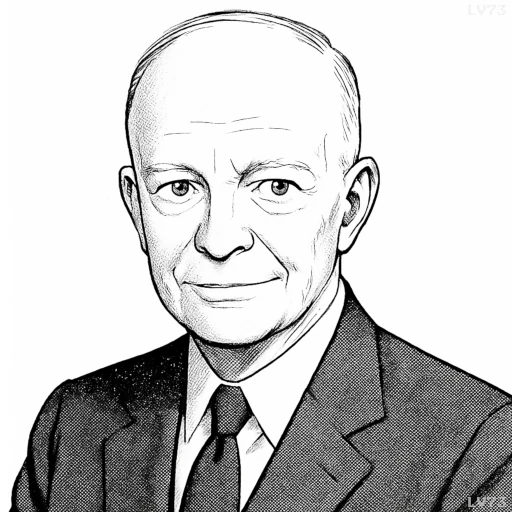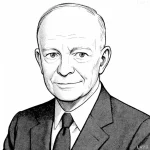“History does not long entrust the care of freedom to the weak or the timid.”

- October 14, 1890 – March 28, 1969
- American
- The 34th President of the United States, General, Military Leader
table of contents
Quote
“History does not long entrust the care of freedom to the weak or the timid.”
Explanation
In this resolute and sobering quote, Eisenhower emphasizes that the preservation of freedom demands strength, courage, and moral clarity. He suggests that liberty is a responsibility, not a given, and that those who are unwilling to defend it decisively—whether through action, leadership, or sacrifice—will eventually lose it. His message is not only about military strength, but about the fortitude of character and conviction required to sustain a free society.
The historical context lies in the Cold War era, during which the U.S. positioned itself as the global defender of democracy against the spread of authoritarian regimes. Eisenhower, as both a military general and a president, understood that freedom must be actively defended—politically, ideologically, and at times militarily. This quote encapsulates his belief that inaction or appeasement in the face of threats weakens liberty, both at home and abroad.
Today, this quote remains highly relevant in confronting challenges such as authoritarianism, political polarization, and threats to civil liberties. It serves as a reminder that freedom is never self-sustaining—it requires vigilance, strength, and resolve from each generation. Eisenhower’s words call on citizens and leaders alike to be brave stewards of liberty, recognizing that timidity in the defense of freedom is as dangerous as open opposition to it.
Would you like to share your impressions or related stories about this quote in the comments section?


